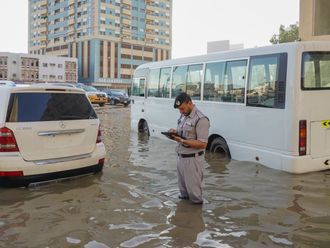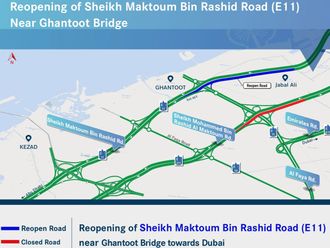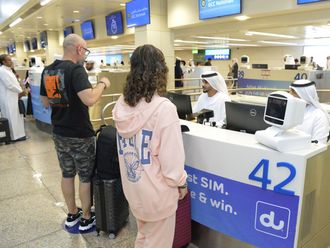Dubai: Smart or electronic number plates on vehicles will soon be introduced in Dubai that could help implement variable speed limits among its several other benefits.
The technology controls speed of a vehicle according the limit on a particular road, which could help improve safety, particularly on internal roads.
Being introduced to the region by Dubai-based firm Autograde, the technology is on display at the region’s biggest transport fair, UITP MENA Congress and Exhibition, which began on Sunday.
“The concept has been around for a few years now and recently Australian state of New South Wales has introduced it in their cities. Our device is RFID based and we are in talks with RTA to try the technology, which has multiple benefits apart from improving road safety,” said Ahmad Al Ali, Director of Autograde.
Autograde is one of the few companies approved by RTA to install speed limiters on commercial vehicles. Installing speed limiters on commercial vehicles is mandatory by law with maximum speed restricted to 100kph.
The law was introduced early last year by Emirates Standardisation and Metrology Authority, and Roads and Transport Authority (RTA) doesn’t renew registration of any commercial vehicle without a speed limiter installed.
Introducing speed limiters was good move, feels Al Ali, “ but having an adaptable device that adjusts with varying speed limits on different roads would be even better.”
Among other benefits of the technology are integration with RTA’s Salik, storage of data that can allow authorities to track movement of vehicles and identify criminals, auto deduction of parking fees, while it can also ease entry to and exit from parking areas, without the need to swipe cards.
“The technology can be put to multiple usage and plenty benefits can be derived from it. It can inform a motorist whether there is any vacant slot in a parking area, it can save a lot of money that people pay in fines by speeding on internal roads. In many cases people are unaware of the speed limit on internal roads and they are caught by radars and this technology can help avoid these situations,” said Al Ali.
RTA’s Licensing Agency CEO, Ahmad Hashem Behroozian acknowledged the benefits of the system and informed that it is being studied.
“Smart plates could be the way for future. We have been approached by several companies and there are different technologies on smart plates, which basically do the same job and we are considering it. We are in a very early stage of studying the project so we have still not finalised which one we are adopting and on how we will implement it,” said Behroozian.
He added that the devise with telemetric technology could be particularly helpful for taxis.
“We normally get complaints against taxi drivers for speeding on internal roads. Right now the taxis have speed limiters installed with speed locked at 140 km/h, which doesn’t help in the city. With this technology this problem of speeding on internal roads could be solved with speeds restricted according to the limits on a particular road,” Behroozian elaborated.
Interestingly, the technology could be implemented without much additional cost, which can work in favour adopting it.
The UITP MENA Congress is being held at Dubai World Trade Centre and will conclude on April 30. The conference brings together public transport experts, manufacturers, operators as well administrators from across the region.












